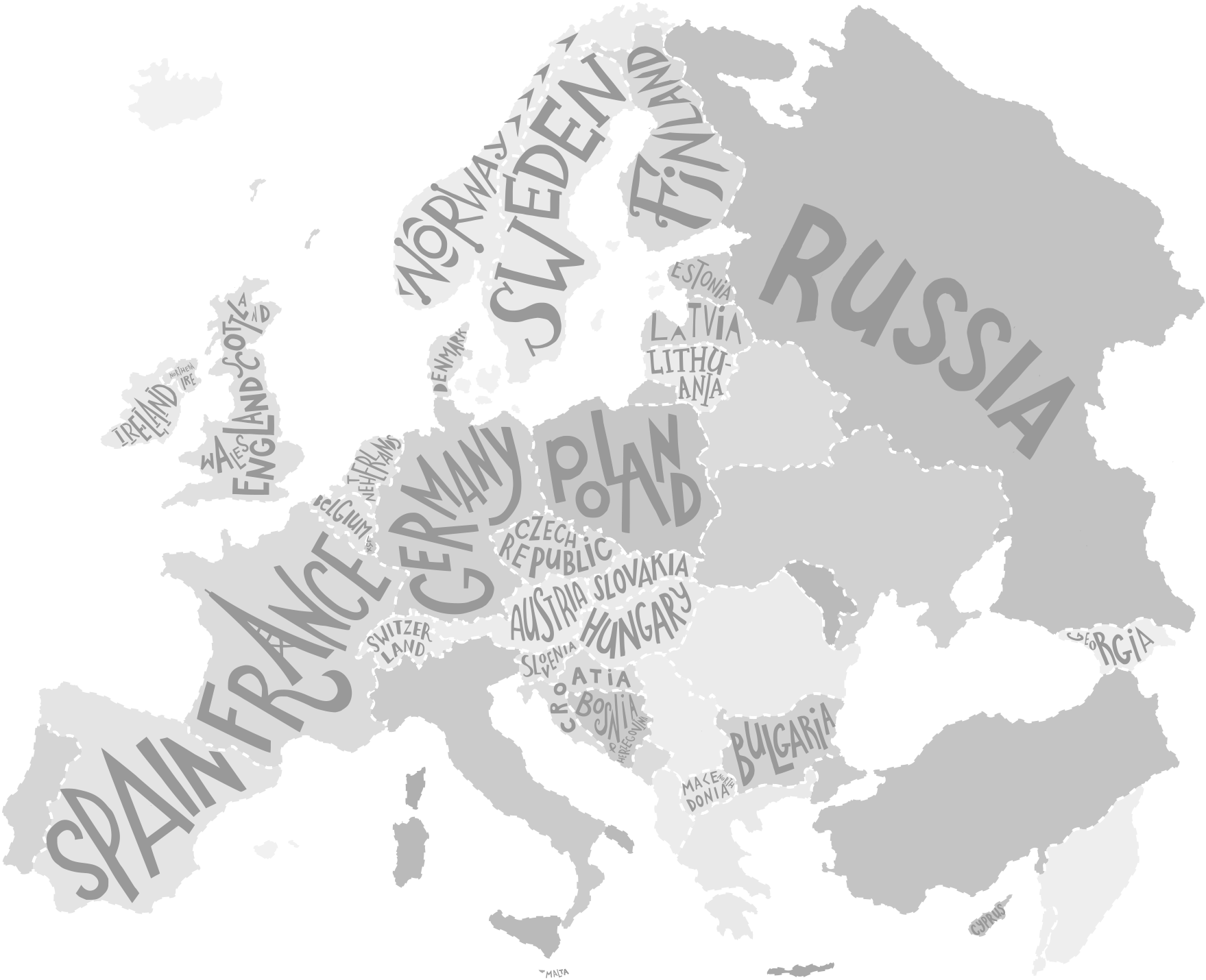Member highlights 2020
Austria goes
coal-free!
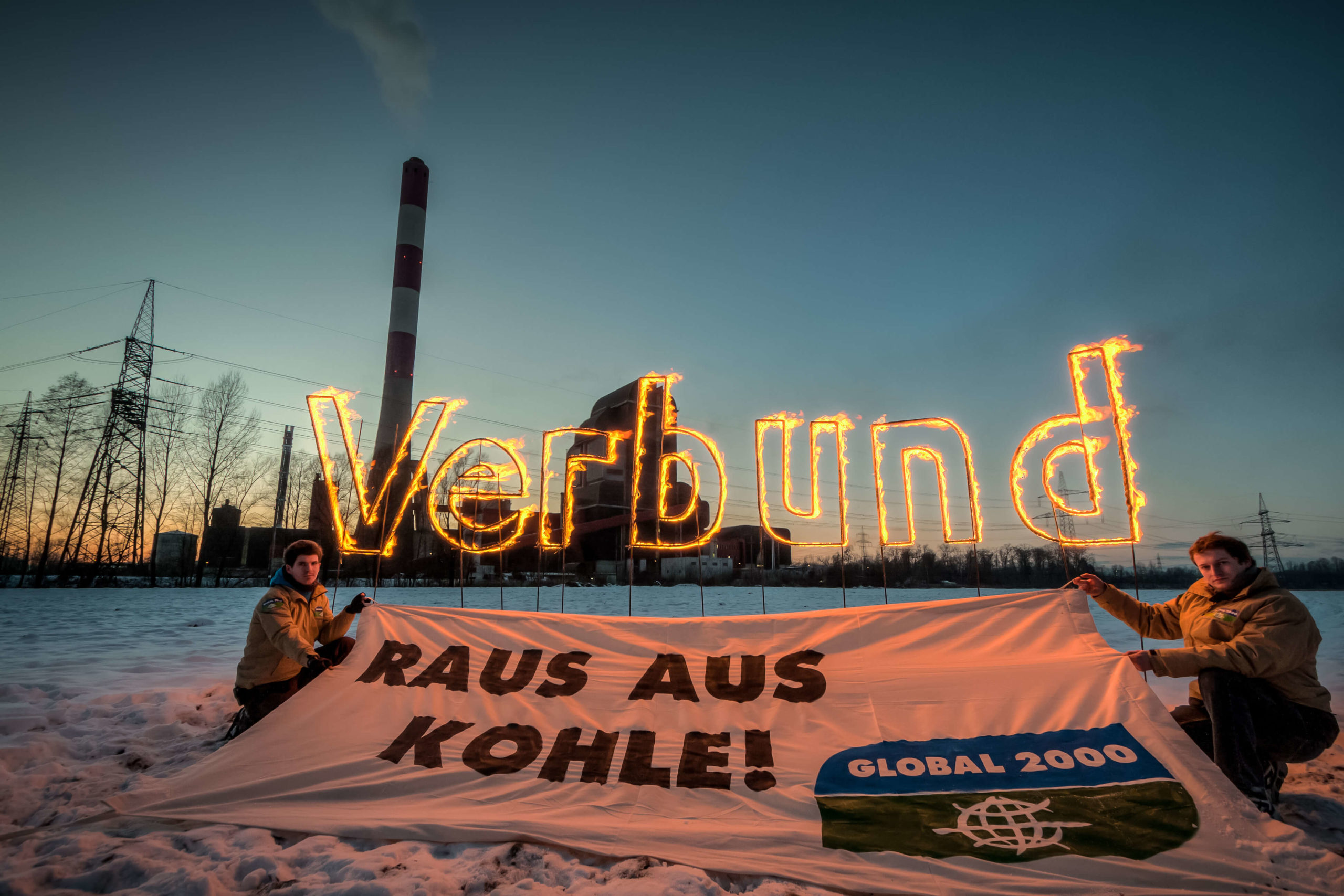
AUSTRIA
After years of campaigning by Friends of the Earth Austria and other environmental groups, Austria shut down its final coal-fired power plant. This groundbreaking success is a step forward in the transition to clean energy. Friends of the Earth Austria had gone to great lengths to highlight the risks of coal-powered energy, releasing a study to show the number of premature deaths and respiratory diseases linked to coal power. They even climbed on the roof of the power plant to make their message heard!
Read more >
Take back
your trash!
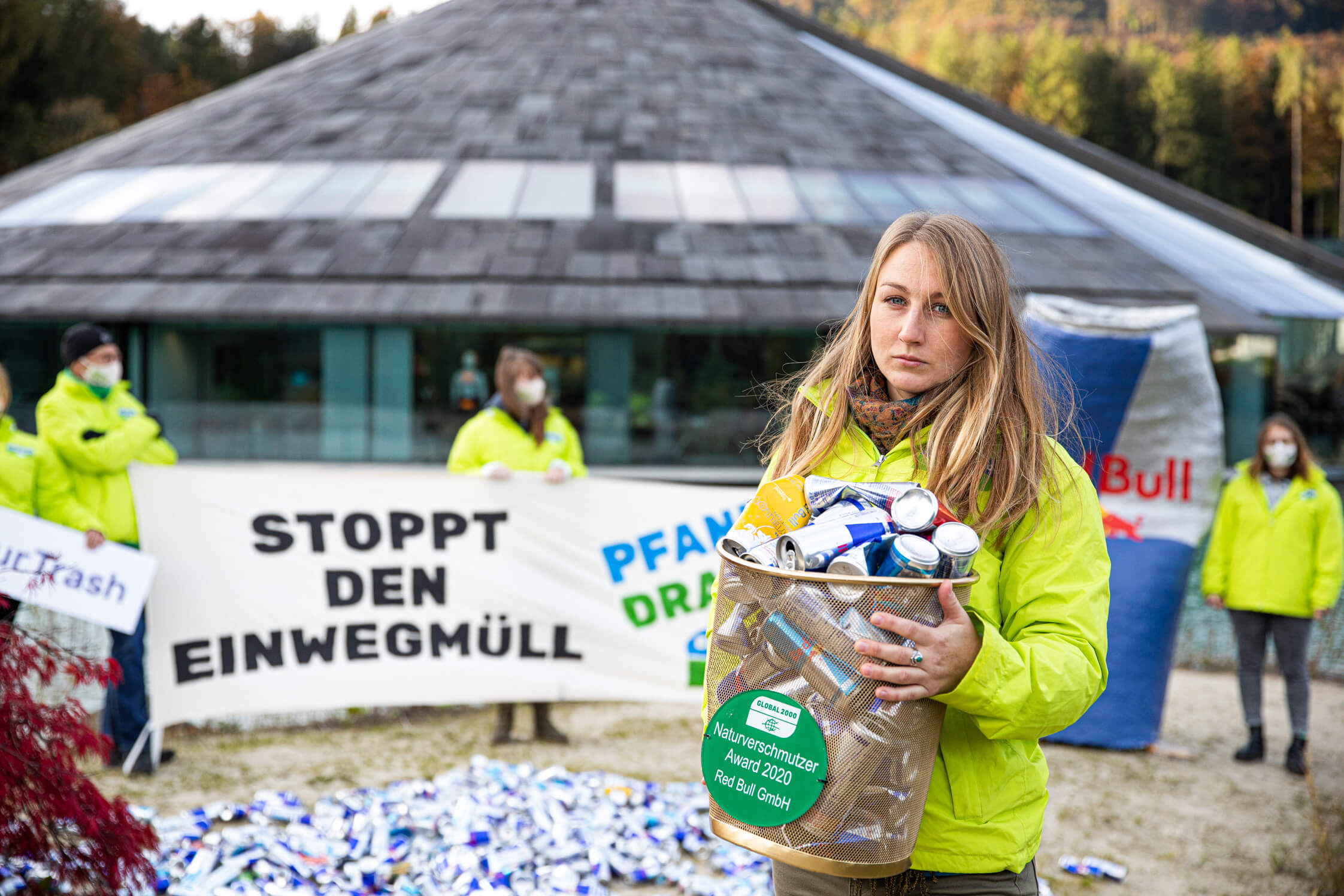
Austria
Friends of the Earth Austria brought the issue of single-use waste to the attention of their government. In one action, they returned 808 cans found littered in nature back to Red Bull, Austria’s most polluting company, with the message “This is your trash!”. The group’s petition for a single-use deposit system gathered almost 35,000 supporters and was creatively delivered to the government building with a spectacular light projection. Now they are keeping the pressure on the government to agree strong new waste laws in 2021.
Read more >
We can
save water
Belgium (Brussels and Wallonia)
Citizens were brought together in a meeting hosted by Friends of the Earth Belgium to raise awareness about water stress in the country, and exchange ideas on how to develop greater water resilience. Through a series of workshops and conferences, participants came up with concrete ways to tackle water shortages and improve water management at the local level. They also learned about the challenges facing this vital resource on a global scale.
Read more >
People power
not hydropower
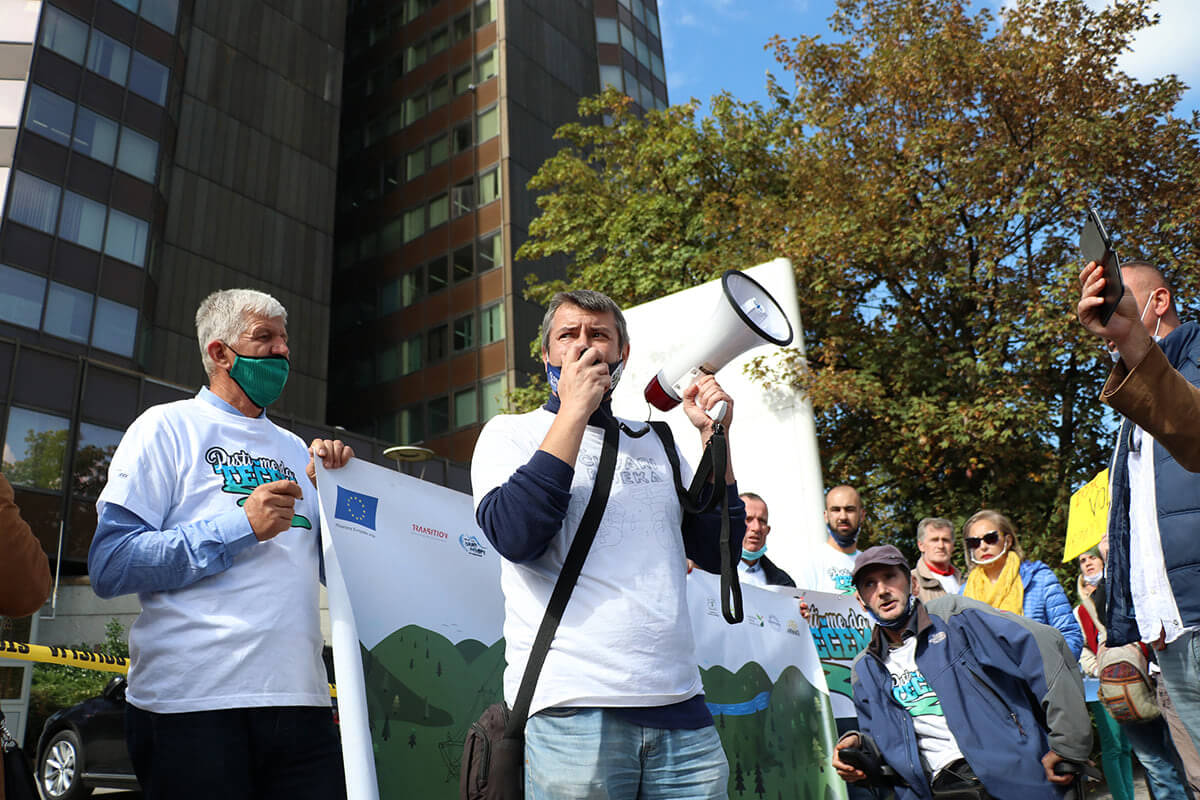
Bosnia & Herzegovina
Following a long campaign by Friends of the Earth Bosnia & Herzegovina and the national Coalition for the Protection of Rivers, the government voted to ban the construction of small hydropower plants across the Federation of Bosnia and Herzegovina. This vote was based on the ‘Declaration on the Protection of Rivers of the Western Balkans’ prepared by environmental associations in reaction to huge damage to local communities and the environment caused by small-scale hydropower projects. With around half the hydropower plants in the country located in the Federation, (as opposed to Republika Srpska, the other entity) of Bosnia & Herzegovina this vote is a huge success for local communities and activists and for a green energy transition.
Read more >
When humans
and animals
coexist

Bosnia & Herzegovina
Friends of the Earth Bosnia & Herzegovina helped protect the local brown bear population through the first-ever genetic research project into the species. Nature diversity in the region is under threat from political, economic and environmental pressures. There is an urgent need to understand and preserve species and habitats, and promote a traditional way of life in which humans and animals coexist. The research project resulted in a new plan to manage and monitor the brown bear population.
Rays of hope
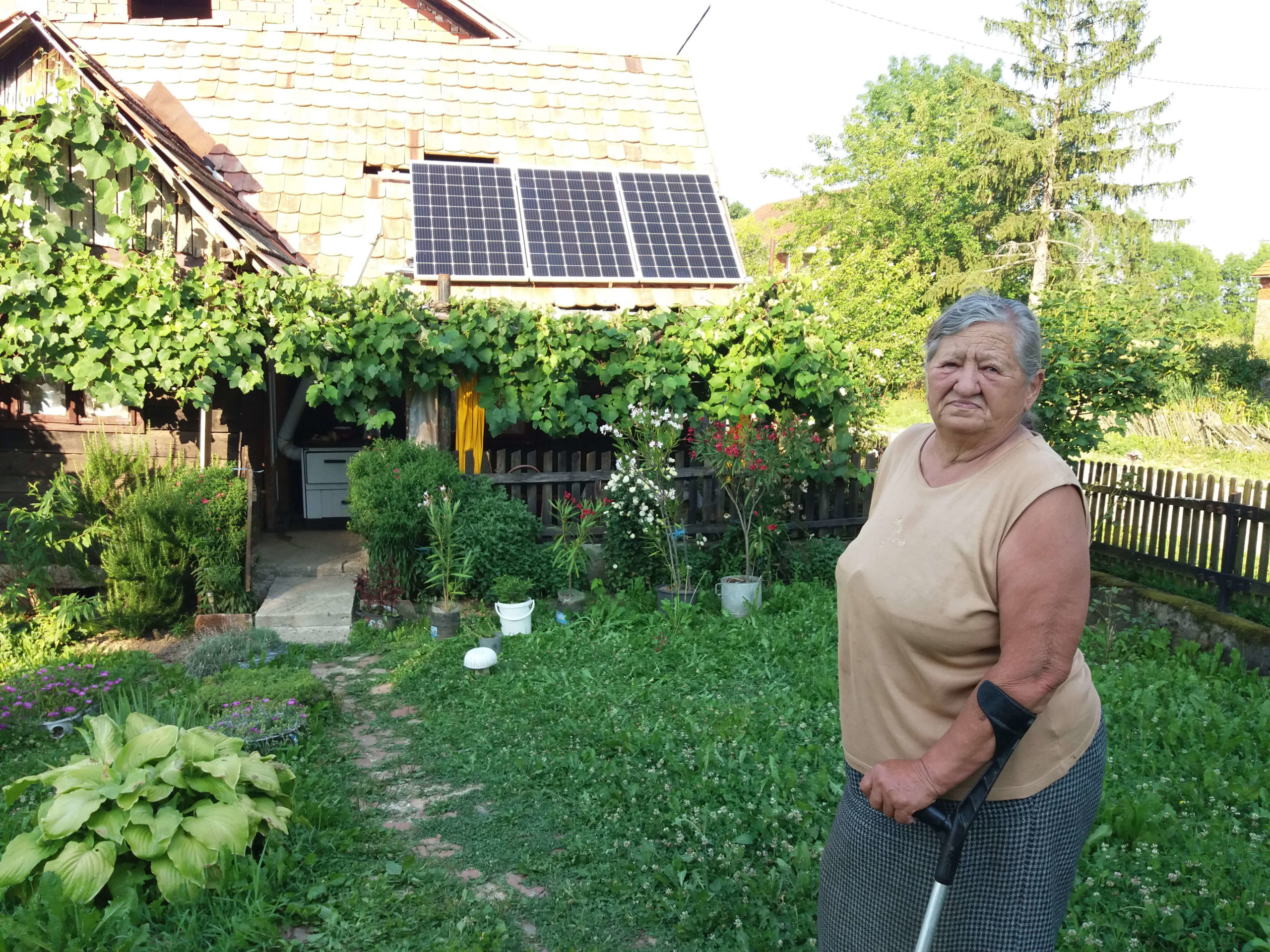
Croatia
To mark Friends of the Earth Croatia’s 30th birthday, the group planned a very different celebration: they provided six households with access to electricity after years living in the dark. Through the Ray of Sun – Light of Hope campaign with the People for People initiative, the group raised awareness of energy poverty and the crucial role of solar in tackling poverty and the climate crisis. Their crowdfunding platform exceeded its target, accumulating donations from over 500 people to provide electricity to six homes in Sisak-Moslavina, one of the poorest regions of Croatia.
Read more >Food sovereignty: a how-to guide

Cyprus
Friends of the Earth Cyprus completed a successful two-year campaign on food sovereignty. They got around 800 citizens involved in a series of trainings and events on sustainable food systems. Together with policymakers, the public and rural and urban youth, Friends of the Earth Cyprus developed a series of materials on food sovereignty which they shared widely to promote the sustainable food system transformation.
Hacking a green
recovery
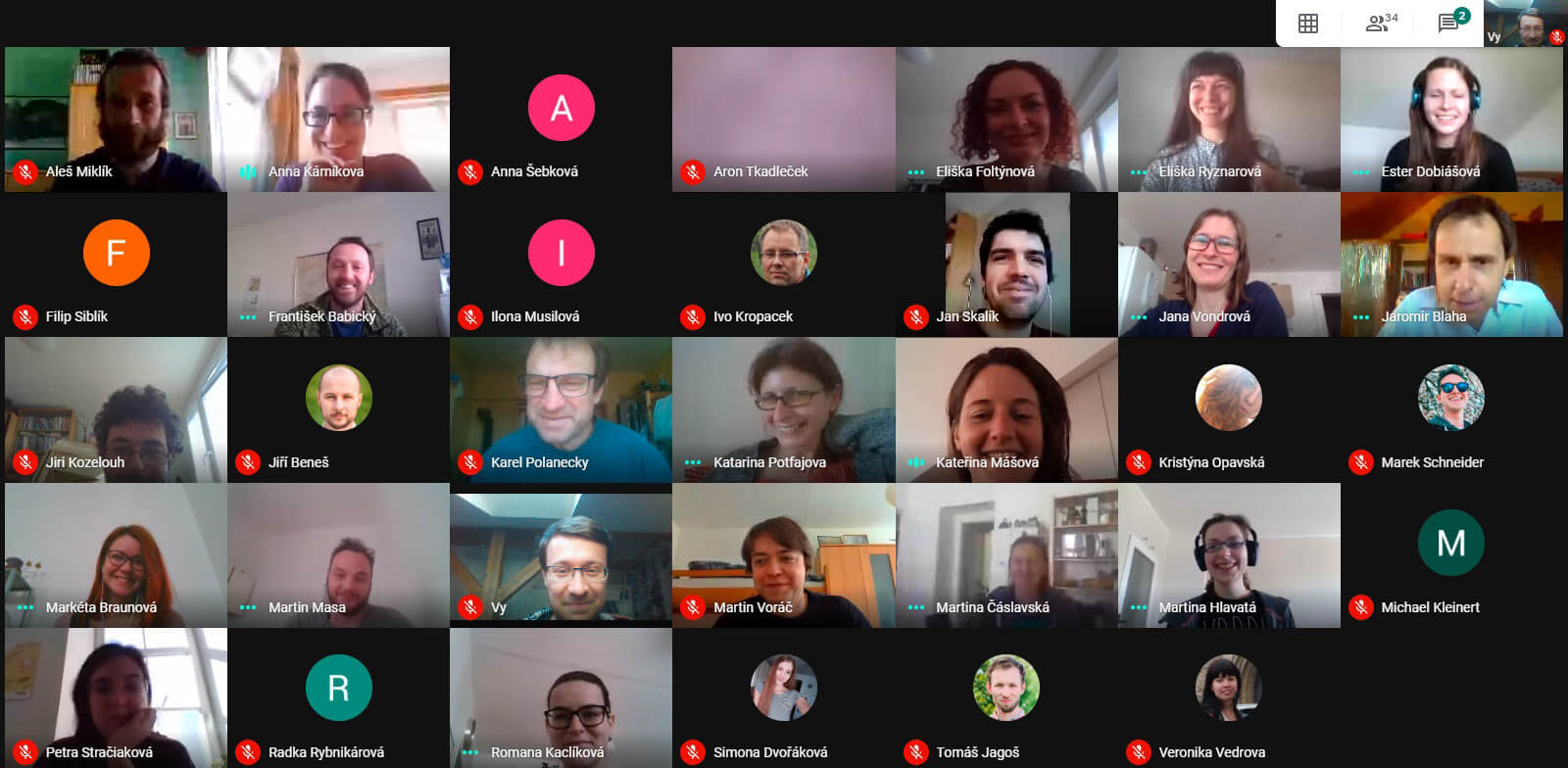
Czech Republic
Friends of the Earth Czech Republic brought businesses, academics and activists together to boost social cohesion and contribute to a green and just post-Covid recovery. In a five-day ‘hackathon’, participants brainstormed innovative proposals for a green recovery investment plan that would best serve people, the climate and the economy. The event drew on the spirit of solidarity triggered by the coronavirus epidemic. The final plan proposed investments for 300,000 solar panels on family homes and a billion euro investment in sustainable landscape management.
Read more >Festival Y?!
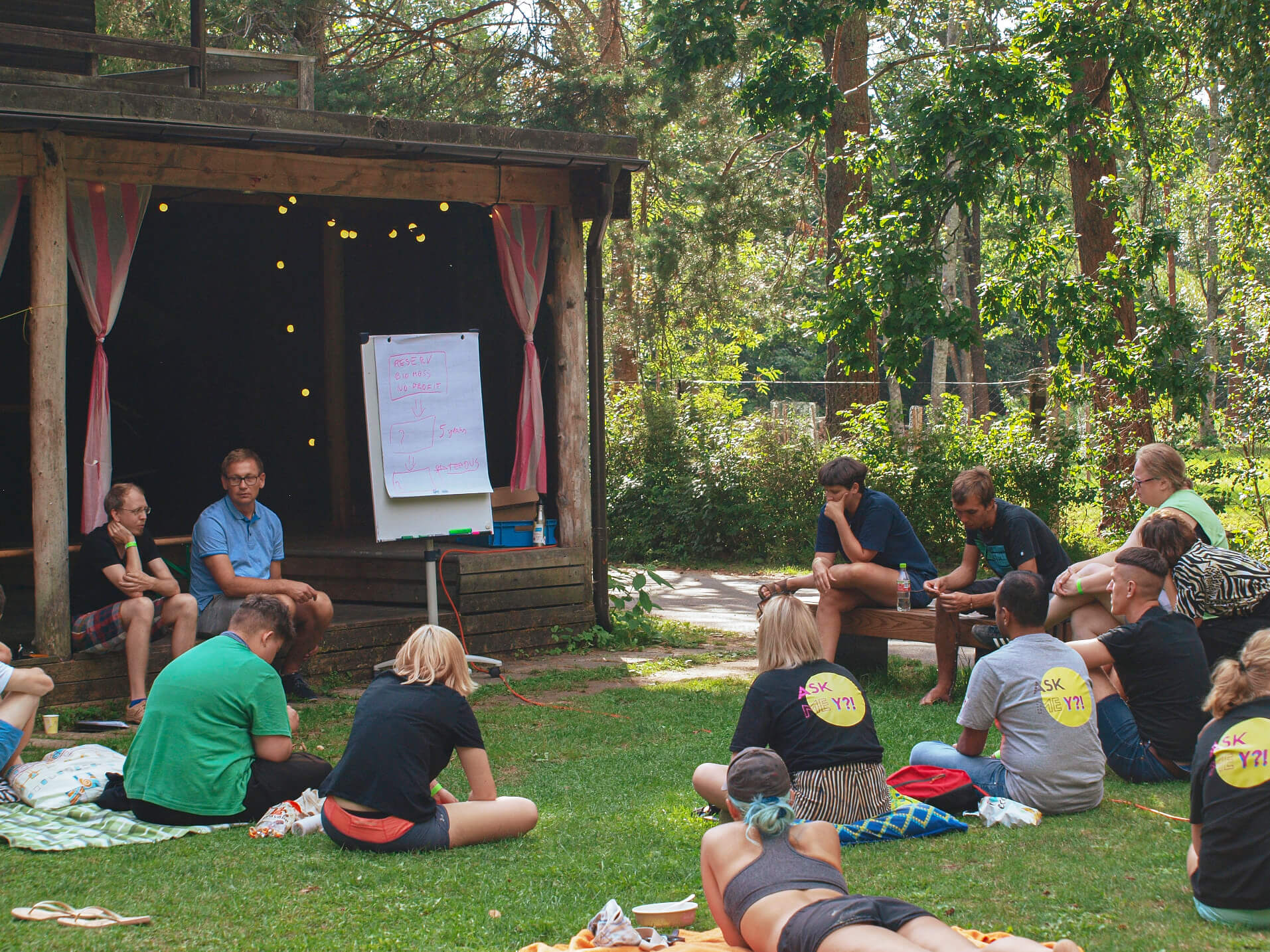
Estonia
Friends of the Earth Estonia worked with environmental groups from Estonia, Latvia and Lithuania to organise ‘Climate and Social Justice Festival Y?!’ – four days of debates, skillshares and online activities. Nearly 100 people from across the Baltic region participated in the festival, sharing skills, networking and discussing how to create systemic change in governance, energy and the economy. The festival activities reached almost 4000 more people online, and the festival team have become Solidarity Network Y?!, offering participatory funds and capacity-building opportunities for grassroots climate movements in the Baltic states. The event was an important and rare opportunity for small progressive groups in the region to connect and build a shared view for a fair and green social transition.
Read more >
Seeing the
(green) future
Estonia
Estonia has long been heavily dependent on fossil fuels, but Friends of the Earth Estonia has been working tirelessly to change that. Last year, their energy experts launched a Sustainable Energy Vision for the country, co-signed by ten environmental organisations. The vision laid out a roadmap to decrease energy demand and transition to renewables. It also advocated for renewable community-owned energy schemes. The media coverage of this significant project reached over 300,000 people and is a springboard for future work on a green energy transition.
Read more >Clearing the air
France
Friends of the Earth France, along with 77 other organisations, won a landmark legal appeal to hold the French state responsible for air pollution. The court judged that the state must comply with regulation air pollution rates or face a major fine. This sanction is a ground-breaking step towards protecting public health and the environment from disastrous levels of pollution. Air pollution is already responsible for up to 67,000 premature deaths a year in France.
Read more >
Justice
for Amazon
workers

France
Following the national mandate to close shops and limit deliveries to essential items only during the coronavirus lockdown, Friends of the Earth France launched a successful public campaign to protect Amazon workers. They called for the American e-commerce giant to end deliveries of non-essentials. They worked with trade unions to pressure the Minister of Labour to crack down on the corporate monolith. After a month of campaigning, French courts ordered Amazon to limit deliveries to essential products, under threat of a major fine. Friends of the Earth France continue to fight Amazon’s harmful impact on the climate, environment, employment opportunities and local businesses.
Read more >
Shaping the
climate action
we need
Georgia
Friends of the Earth Georgia set about strengthening civil society participation in national climate policy-making. Working in a collaboration with Friends of the Earth Germany and Columbia, and Ecoaction-Ukraine they created a common vision of ambitious ‘nationally-determined contributions’ to deliver the Paris climate agreement. Their suggestions were fed into the government’s draft plans. They succeeded to mobilise more than 2000 people during a climate action week in different regions of Georgia, and reached thousands more via the media.
Read more >
The road
to sustainable
transport
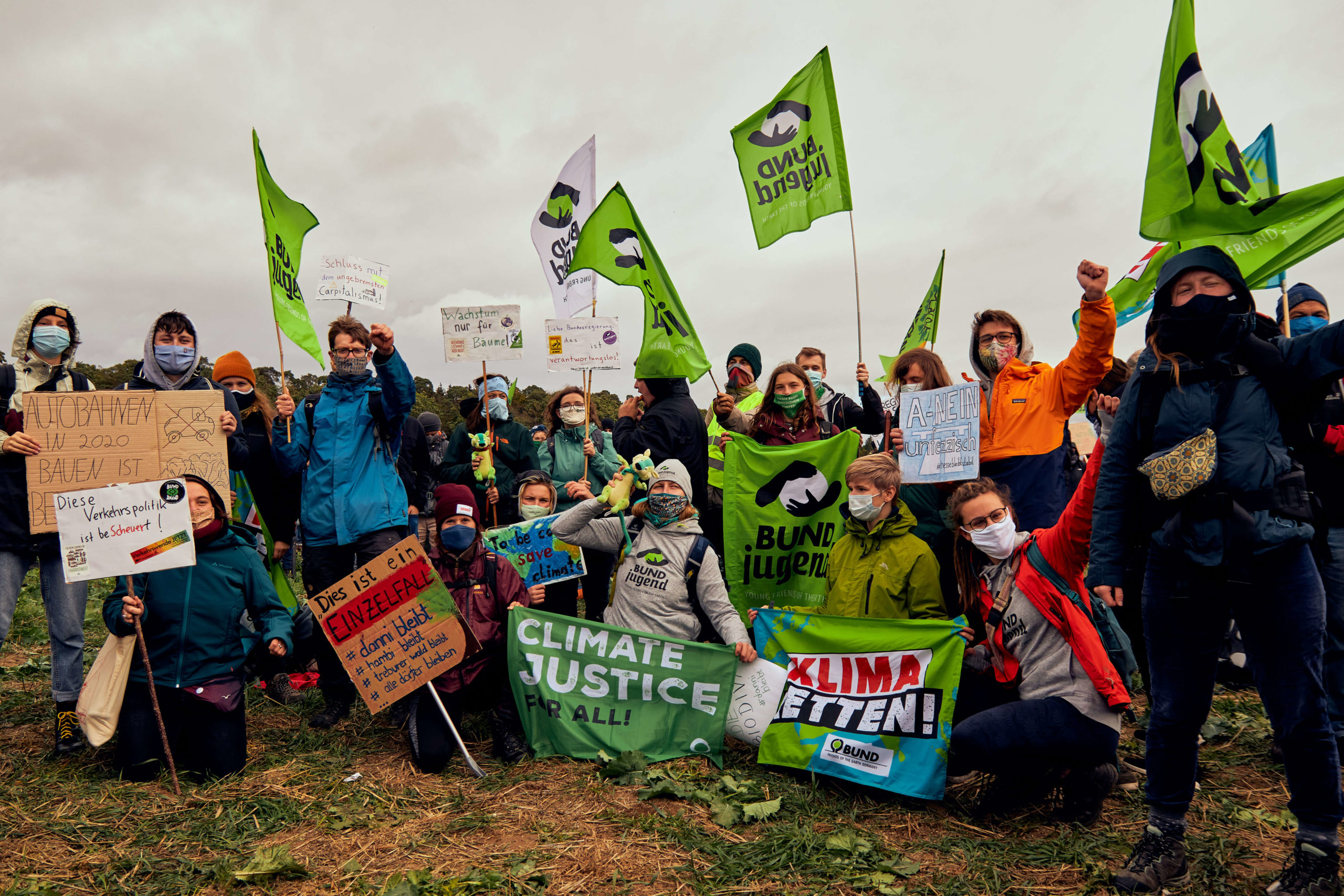
Germany
In Germany, the destruction of the Dannenröder Forest to make way for a highway, despite decades of environmental protests, catapulted the conversation about creating a more sustainable transport infrastructure to national attention. Friends of the Earth Germany shone the spotlight on the local protests and mobilised citizens against the proposed highway. Sadly the battle was lost and the road is being built, but not before it became a symbol of the growing movement against archaic road development projects. Many more people are now calling for sustainable infrastructure planning. The struggle continues!
Read more >
Positive affirmation
after the
pandemic
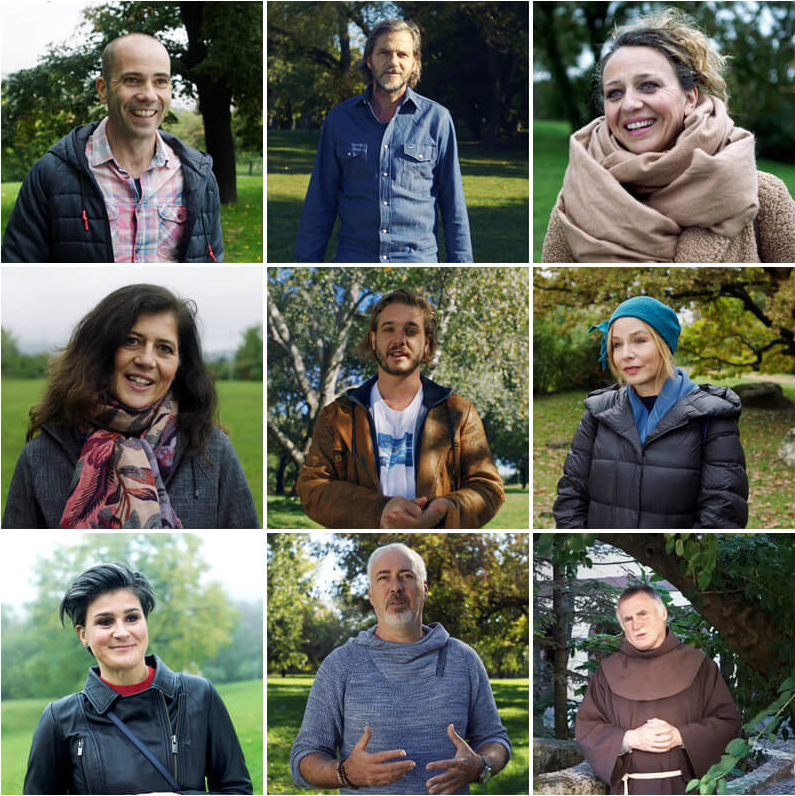
Hungary
In the wake of the Covid-19 pandemic, Friends of the Earth Hungary launched a petition for a ‘Life-Affirming Society’. More than 25,000 people and 130 organisations took a pledge to live in a more sustainable way, and demanded better action on the climate from politicians. As part of the campaign, more than a thousand people participated in different online events to discuss their pledge and share ideas on how to be more sustainable as individuals and members of the community. Several celebrities and public figures also joined – even a famous cartoon cow!
Read more >
Sparking
community
energy
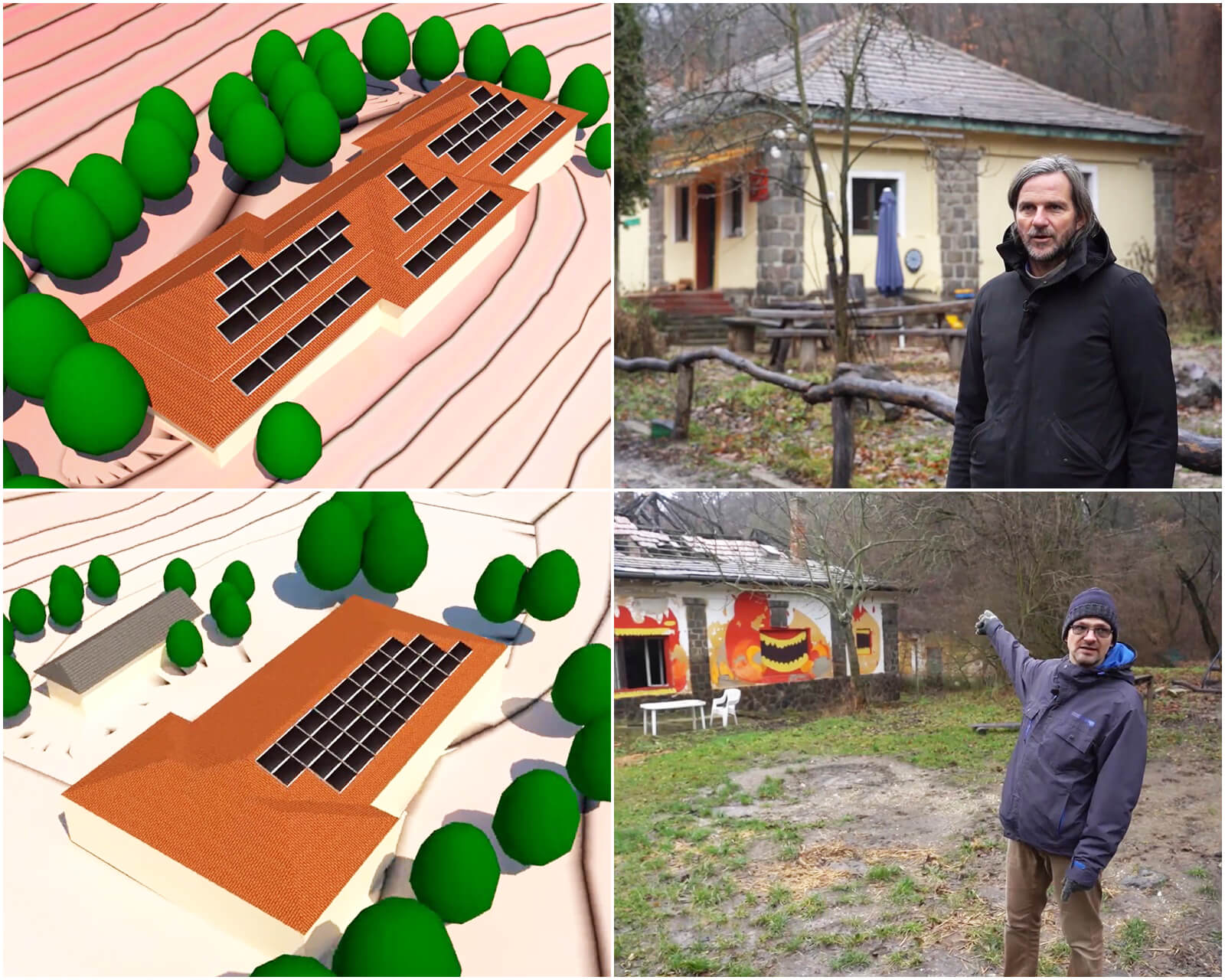
Hungary
Friends of the Earth Hungary led big steps forward towards locally-controlled renewable energy when it won funding for six pilot community energy projects, due to launch this year. They also attracted more public support for renewable community energy thanks to a partnership with a ethically-minded celebrity to promote the pilot initiatives. Not only that, Friends of the Earth Hungary also made sure Hungary’s legal framework was more inclusive of community-led cooperatives. Their tireless advocacy work resulted in energy policy forming part of Hungary’s strategies and draft spending plans for the next five years.
Read more >Fossil free
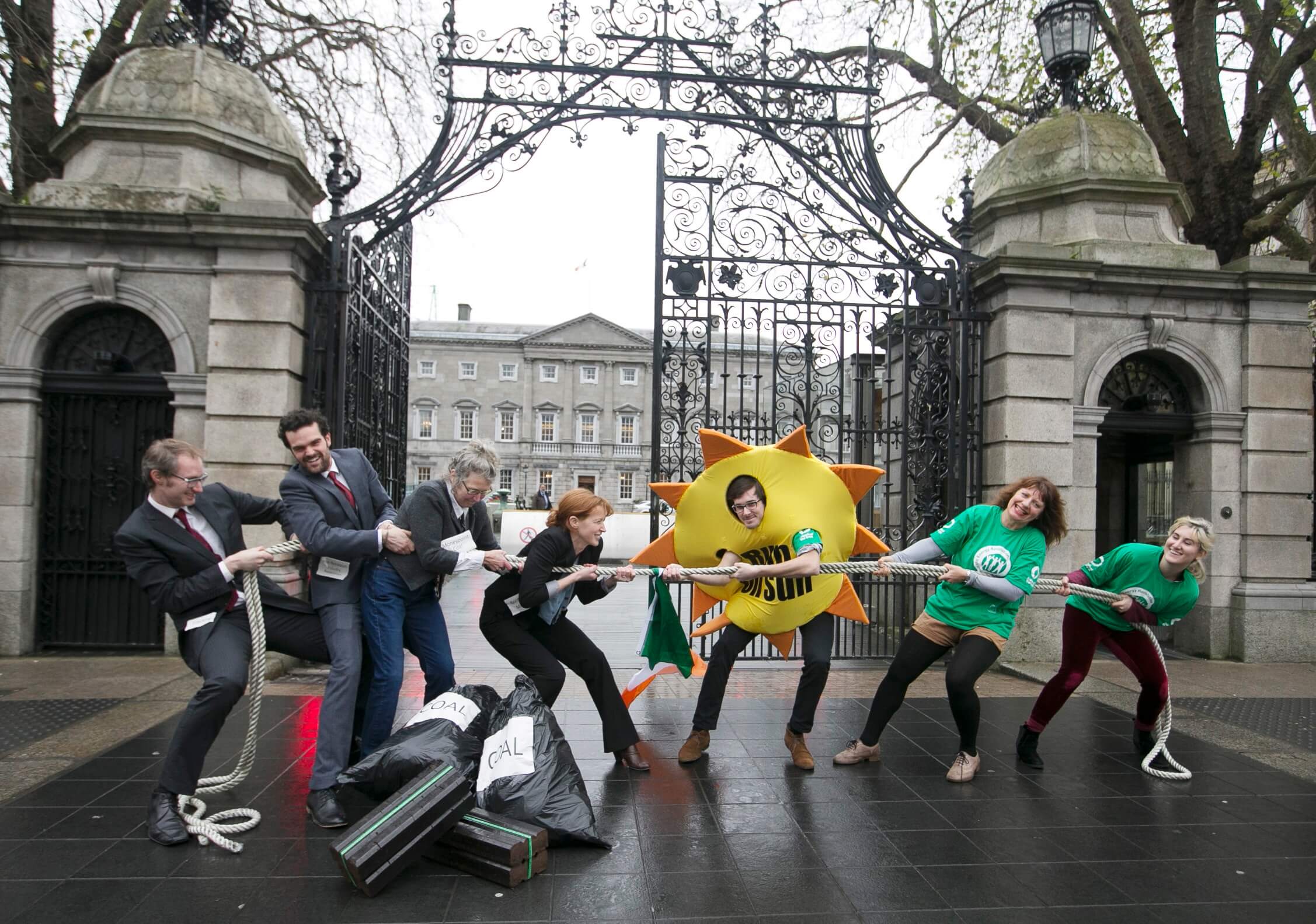
Ireland
Another major victory for a fossil free future was racked-up by Friends of the Earth Ireland and other environmental organisations, as Ireland banned future oil and gas exploration in Irish waters. The successes don’t end there – the government introduced a support scheme for microgenerators, thereby making it easier for schools to install solar panels. This comes after Friends of the Earth Ireland’s campaign for renewable and community-owned energy amassed thousands of supporters: over 16,000 emails were sent to elected representatives over the course of 2020, and even school pupils got involved promoting solar energy in schools!
Read more >
Network
for the future
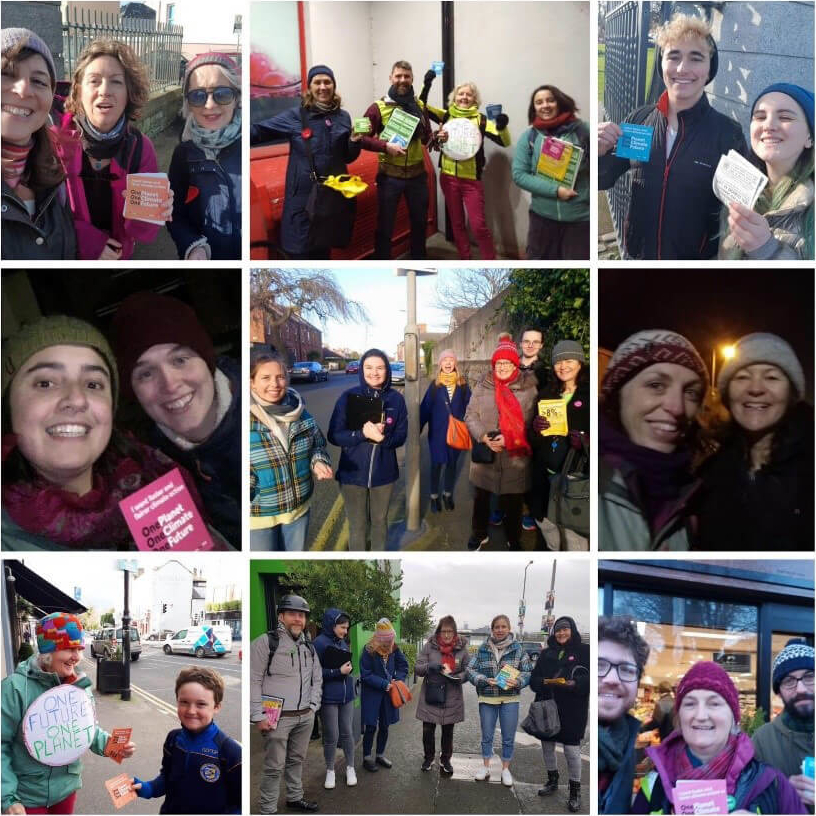
Ireland
In the lead-up to Ireland’s 2020 general election, Friends of the Earth Ireland launched a network of local ‘One Future’ climate action groups. The groups, which received training and resources to make build their effectiveness and resilience, asked election candidates to sign a pledge for ‘Faster and Fairer Climate Action’. By the time of the election there were 19 active local ‘One Future’ groups (now there are 28!). Friends of the Earth Ireland showcased the power of the network by holding an online Lobby for Climate Action. Over 1000 people were able to meet their MPs and ask them for a stronger Climate Law.
Read more >
At last…
a drink deposit
system
Latvia
Friends of the Earth Latvia won a twenty-year battle to introduce a mandatory drinks containers deposit system, which will launch in 2022. Through their intense campaigning – including shore clean-ups, legislative hearings and media debates – they gathered more than 10,000 signatures in favour of the deposit scheme, which were submitted to the national parliament. The group also produced a Baltic case study with data supporting the introduction of the system, which was widely distributed. The new scheme is predicted to significantly reduce the amount of litter from glass, cans and PET bottles.
Read more >
Call of the wild
plants

Malta
Working with an ethnobotanist, an illustrator and local chef-farmers, Friends of the Earth Malta produced a highly popular Edible Wild Plants Foraging Guide to raise awareness and foster appreciation for the diversity of wild flowers in the Maltese archipelago. The guide, which was part of a cross-European government project to raise the voices of young people, was a huge hit with the public. Bookshops even requested the group organise foraging walks! At a time when lockdown has increased people’s interest in the outdoors, the Foraging Guide was an ideal way to engage more people in the value of plants.
Read more >
X marks
the farm

Malta
Produced during the first Covid lockdown, the Malta Farm Map connects people wanting to buy local food with local farmers. The online map received almost 18,000 visits – around 3% of the total population of Malta! – and increased consumer awareness of the local food and farms available to them. On top of this, it is helping farmers increase their income without middlemen. Connecting locals with their farms also reduced farm waste and helped farmers adapt to the challenging Covid-19 situation.
Read more >
Victory for
victims of
Shell’s oil spills
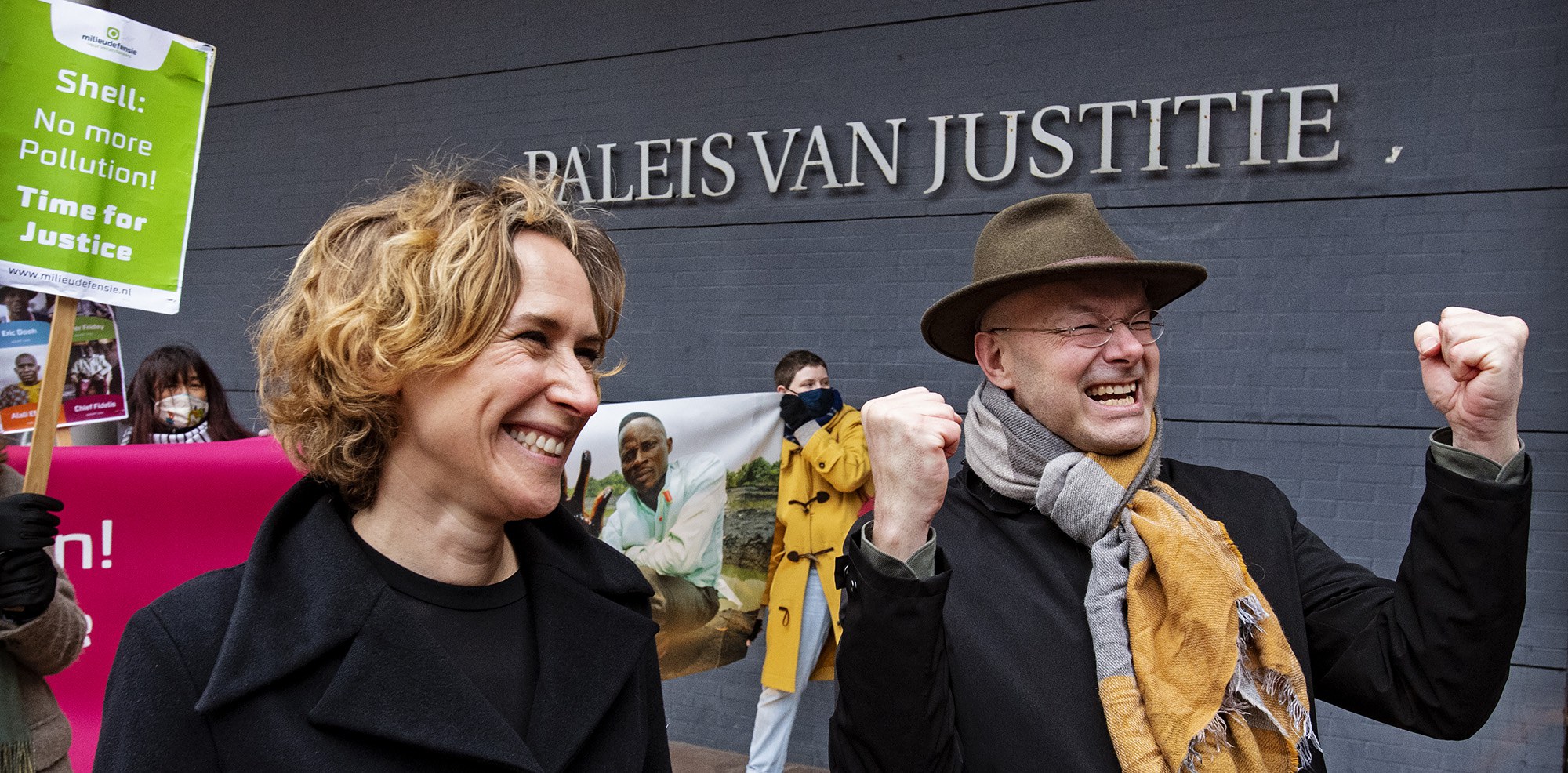
Netherlands
It took 13 years. Finally, some justice for the people of the oil-soaked Niger Delta. Three Nigerian farmers, victims of oil pollution – supported by Milieudefensie/Friends of the Earth Netherlands – beat one of the world’s most powerful transnational corporations, Shell, in court in the Hague.
As the news spread across the world, people across Nigeria celebrated with victory parties.
“Finally there is hope, some justice for the Nigerian people suffering the consequences of Shell’s oil,” said Eric Dooh, one of the plaintiffs.
Dooh’s home, Goi, was a lush, fertile, thriving village. Until two major oil spills from Shell’s poorly maintained pipeline struck in 2003 and 2004, contaminating land and water. People were left destitute, but Shell denied any responsibility. So, Friends of the Earth joined with Dooh and three other farmers from nearby villages to sue Shell in its home country, the Netherlands.
It took years of gathering evidence and jumping legal hurdles. Finally, the court found that both Shell and its Nigerian subsidiary did not do all that was necessary to prevent and respond to the spill. It is the first time any survivors of Shell’s pollution have won compensation and justice in the home country of the oil giant.
This case has paved the way to justice for victims of corporate crimes. The evidence shows Shell has much more cleaning up to do in Nigeria. But from now on, any Dutch company failing to adhere to human rights and environmental regulations overseas risks being taken to court, held accountable, and forced to pay compensation. Now Friends of the Earth is campaigning for stronger laws to make this avenue easier to access.
Workers open
to transition

Scotland
Friends of the Earth Scotland and allies surveyed over 1300 oil & gas workers about their industry, their working conditions and their future. With terms and conditions in oil and gas worsening, they heard from an undervalued and frustrated workforce who are open to transition. The survey found 81% would consider moving to work in another industry if the right opportunities existed.
Respondents cited low morale and fears that their community will become a ‘wasteland region’ as we move away from fossil fuels. 91% of workers had never heard of a ‘just transition’.
The survey received great media attention, and strengthened relationships between workers and environmental organisations. Using the findings, the ‘Offshore’ report was published with recommendations to improve working conditions in the oil and gas sector, address barriers to entry and conditions within the renewables industry, and ensure workers are able to help determine policy for the energy transition.
We won’t
be silenced
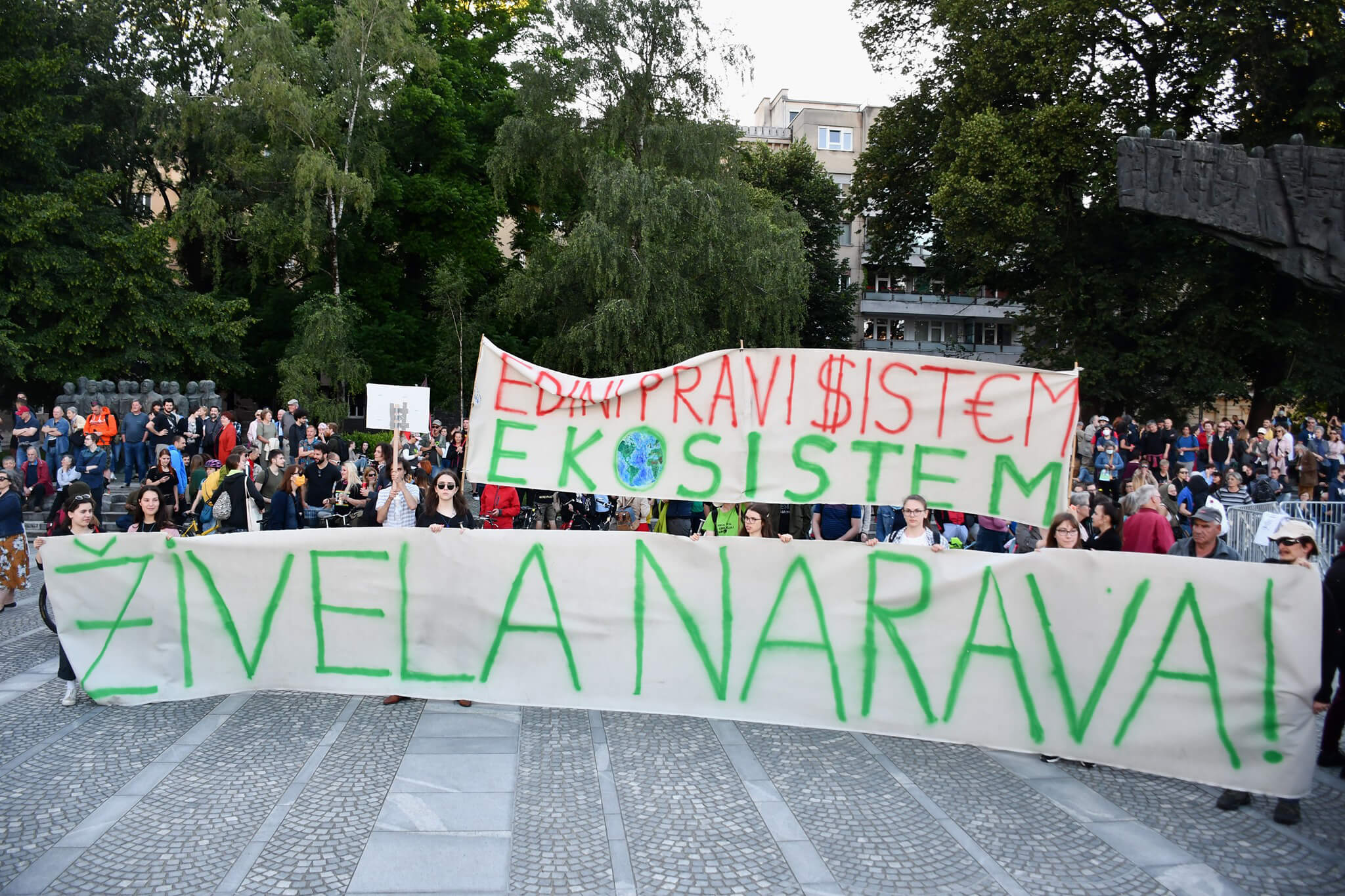
Slovenia
When the Slovenian government stripped NGOs of their right to participate in legal procedures which assess the environmental impacts of new construction work, Friends of the Earth Slovenia took action. Together with two other organisations, they successfully filed for an official assessment of the legality of the new law. At the same time, they protested in the streets. Before too long, the Slovenian court suspended the requirements excluding NGOs from the legal procedures. This victory means that NGOs can once again take part in and speak up against proposed construction projects that would damage the environment.
Read more >Spontaneous solidarity for small producers
Spain
In Spain, a spontaneous solidarity movement sparked to life when lockdown rules prevented people employed in local and ecological farms from working. Cue #SOSCampesinado. What started as a network of female farmers, trade unions, experts and activists grew in just 15 days to a campaign of over 100 organisations. The campaign appealed to the Spanish state to support small-scale producers and recognise the value of small-scale agroecology. Throughout the pandemic, the solidarity movement has continued to grow and more than 700 groups are active in support of local markets and small producers.
Read more >
Years of
campaigning
for a climate
law pay off
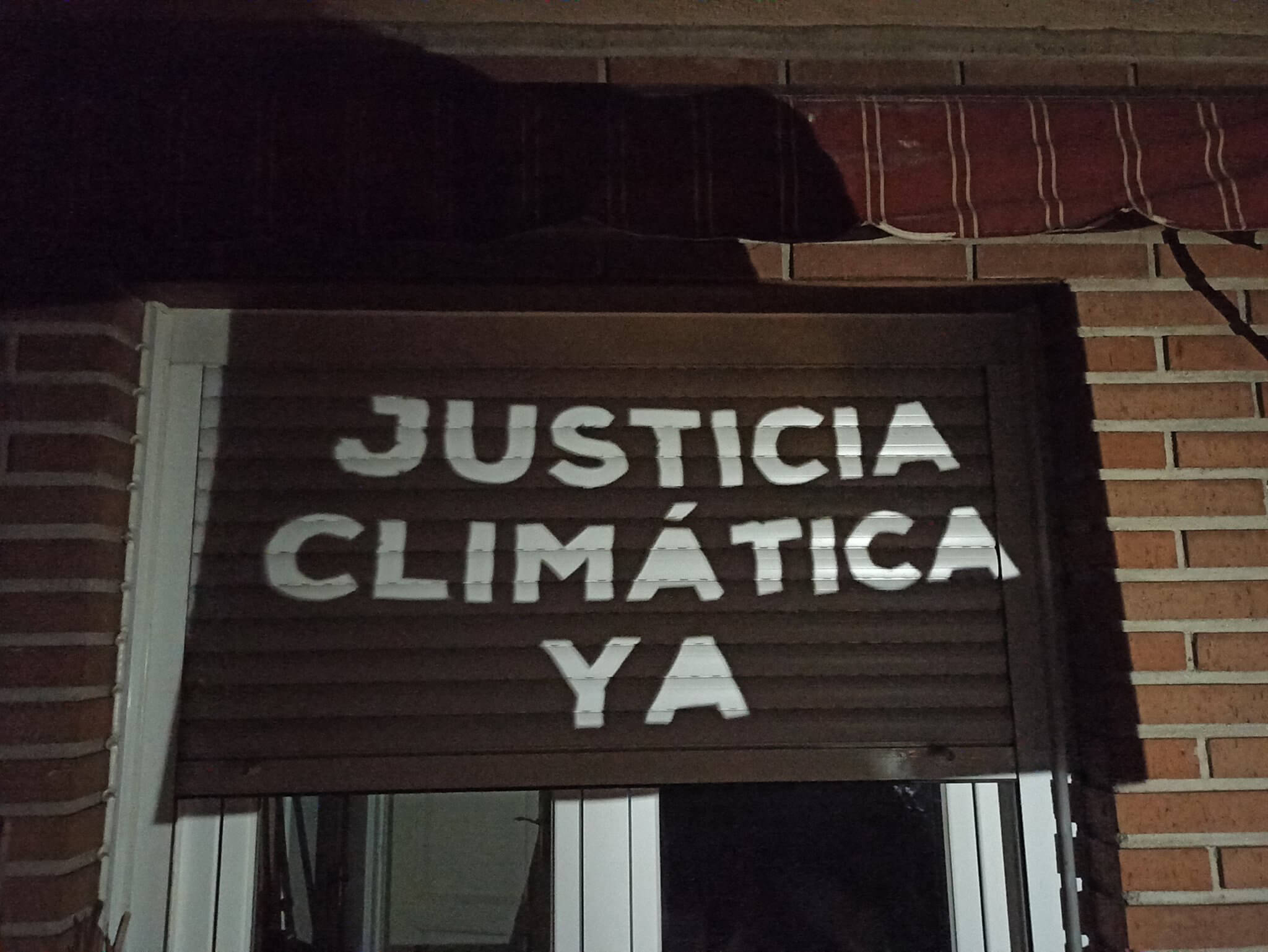
Spain
In the midst of turbulent times, a final draft of a climate change law for Spain brought a glimmer of hope. For Friends of the Earth Spain and environmental activists across the country, the new law reflects years of campaigning for government policies to put environmental protection first. The law is a first step towards a sustainable future – but Friends of the Earth Spain are fighting for greater ambition in policies and will not stop until the government steps-up its game with stronger laws to tackle the climate crisis.
People power
for nature
protection
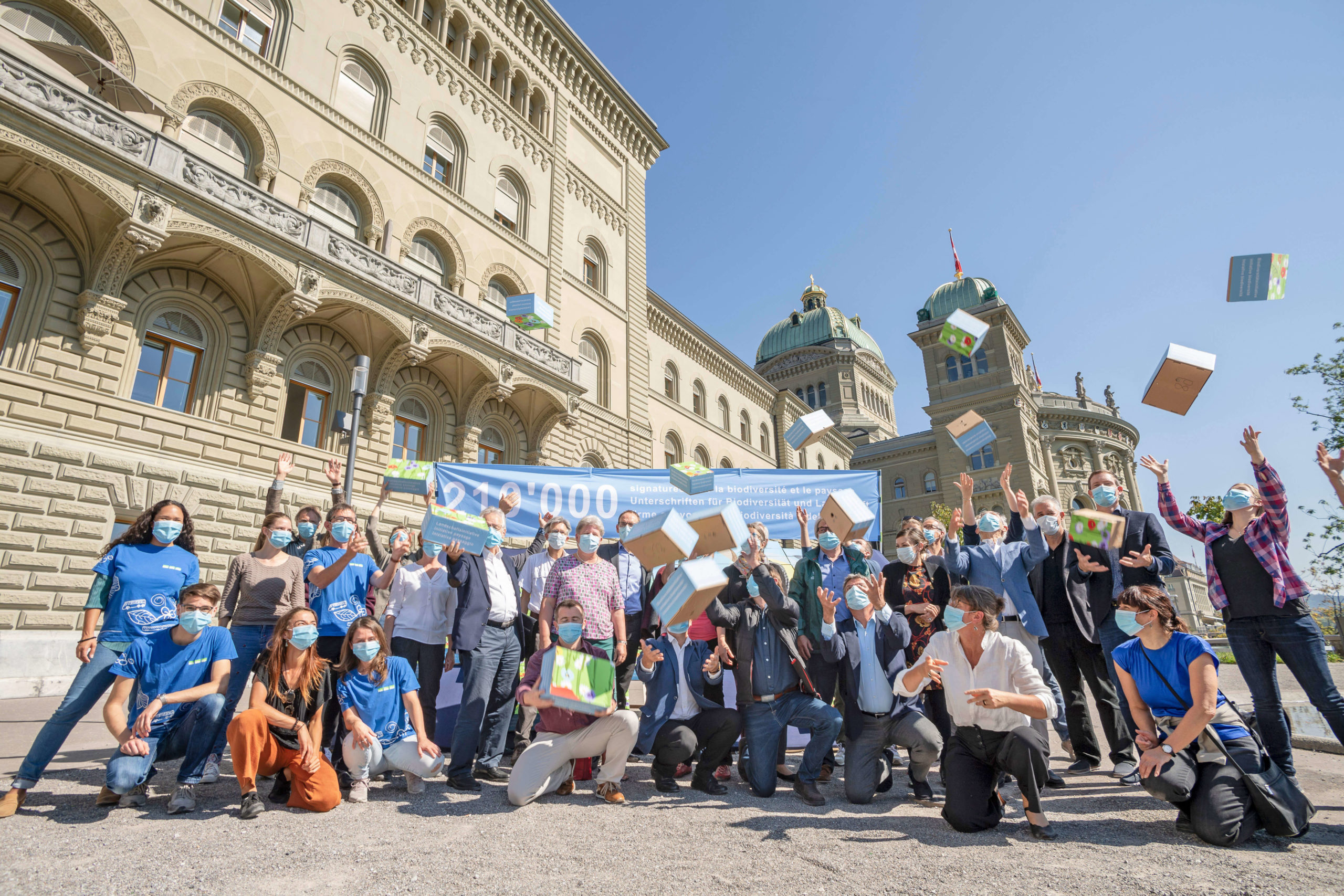
Switzerland
Despite the pandemic restrictions, Friends of the Earth Switzerland gathered over 200,000 signatures in a national campaign for stricter laws on land use. Better laws would protect nature and prevent urban sprawl and unsustainable new construction. The signatures and policy demands were delivered to the federal government, which is now drafting legal proposals. The huge response revealed mass public support for laws protection of biodiversity. If the draft texts don’t go far enough, Friends of the Earth Switzerland are prepared to launch a national referendum to push for improvements.
Read more >


